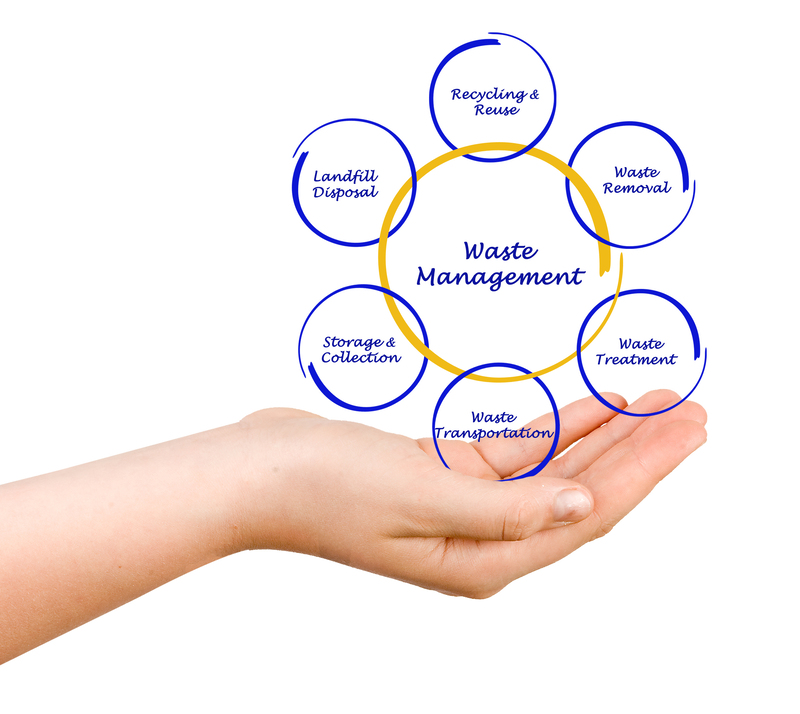Innovative Approaches to Kids' Recycling Education
Recycling education has evolved tremendously, especially for children. As environmental challenges intensify, nurturing eco-consciousness in the next generation becomes paramount. By adopting unique and engaging strategies, educators, parents, and communities can instill a deep-rooted understanding of recycling and sustainability in kids. In this comprehensive guide, we'll uncover the most innovative methods to teach kids about recycling while making learning fun and impactful.

Why Kids' Recycling Education Matters More Than Ever
Today's youth will soon inherit our planet. Educating them early about the importance of sustainability and responsible waste management is essential. Children who grasp the value of recycling are more likely to grow into environmentally conscious adults. Moreover, studies reveal that kids often influence household behaviors, effectively multiplying the benefits of recycling education. Let's explore how thinking outside the box can make these lessons resonate for a lifetime.
The Shift from Traditional Methods to Creative Recycling Lessons
Historically, kids' recycling education was often limited to lectures, pamphlets, and posters. These methods, while informative, rarely engaged young minds or inspired genuine behavioral change. Today, educators are revolutionizing the field with interactive, experiential, and even digital approaches.
- Active Participation: Kids learn better by doing. Hands-on projects replace passive memorization.
- Gamification: Turning recycling knowledge into games makes the subject exciting and memorable.
- Technology Integration: Apps and virtual experiences widen access and reinforce core lessons.
- Community Collaboration: Teamwork and real-world impact foster long-term commitment.
Engaging Tools and Techniques in Modern Recycling Education for Kids
1. Interactive Workshops and Experiments
Nothing beats hands-on learning for young minds. Scientific experiments and creative workshops help kids visualize recycling concepts in action.
- DIY Recycling Projects: Children can collect household waste and create art, new gadgets, or functional items. For example, turning plastic bottles into bird feeders or cardboard into toy castles.
- Compost Experiments: Setting up a mini-compost bin in classrooms or backyards shows how organic waste transforms into nutrient-rich soil.
- Material Sorting games: Using bins labeled 'plastic', 'metal', 'paper', and 'glass', kids practice separating materials correctly in timed challenges.
2. Gamification: Turning Recycling into Play
The element of play is a powerful motivator. Gamified recycling education introduces friendly competition and rewards while reinforcing crucial principles.
- Recycling Trivia and Quizzes: Weekly quizzes with points, badges, or small prizes can motivate children to keep learning.
- Recycling Adventure Board Games: Board games that simulate waste journeys let players explore recycling processes and consequences of mismanagement.
- Recycling Scavenger Hunts: Organize hunts where children search for recyclable items at school or home, learning classification along the way.
3. Integrating Digital Technology
Innovative apps and web platforms have transformed recycling education for kids. These digital tools enable kids to learn independently and interactively.
- Educational Recycling Apps: Many kid-friendly apps feature storytelling, interactive lessons, quizzes, and progress tracking. Apps like Recycle Hero or Garbage Dream immerse children in virtual recycling worlds.
- Augmented Reality (AR) Experiences: AR apps can overlay recycling instructions and fun facts onto real-world items, bringing lessons to life.
- Online Learning Platforms: Platforms like National Geographic Kids or Khan Academy offer free and entertaining recycling modules, videos, and activities.
4. Creative Arts and Media
Art, music, and storytelling capture children's imaginations and support learning through creative expression. Art-based recycling education not only teaches important concepts but also lets kids showcase their unique ideas.
- Eco-Themed Artwork: Encourage kids to craft sculptures or murals from old magazines, bottles, or newspapers and display their masterpieces to inspire the community.
- Storytelling and Puppet Shows: Giant puppets or interactive stories about recycling superheroes make the subject more engaging and memorable for young audiences.
- Music and Songs: Easy-to-learn recycling-themed songs stick in kids' memories and are ideal for classroom sing-alongs or performances.
5. School and Community Recycling Challenges
Friendly competition between schools or classes can make recycling education a community affair. These initiatives produce measurable results while uniting students around a shared goal.
- Classroom Recycling Contests: Classes compete to collect and correctly sort the most recyclables, with winners receiving eco-friendly rewards or certificates.
- Neighborhood Clean-Up Days: Kids take the lead in cleaning up community parks or streets, learning firsthand about littering and the importance of recycling.
- Recycling Science Fairs: Students present innovative recycling solutions, inventions, or research projects to their peers and local leaders.
Incorporating Sustainability into Everyday Learning
Innovative recycling education for children flourishes when environmental stewardship is woven into daily routines. By embedding it across subjects and activities, kids see recycling not as a chore but as a regular, valued part of life.
Cross-Curricular Recycling Lessons
Recycling education need not be just a science topic. Here's how to integrate it across the curriculum:
- Math: Practice counting, measuring, or graphing with statistics on waste production and recycling rates.
- Language Arts: Encourage children to write essays, stories, or poems about recycling adventures.
- Geography: Investigate global waste challenges and recycling differences between countries.
- Art: Turn trash into treasure by creating collages or sculptures from everyday recyclables.
Real-Life Role Models and Guest Speakers
Invite environmental scientists, local government officials, or passionate community members to speak with kids. Real-life role models inspire children and make environmental issues more relatable.
Case Studies: Successful Kids' Recycling Education Initiatives Worldwide
Green Schools Program (USA)
The Green Schools Program empowers American students to lead sustainability projects within their schools. From organizing recycling drives to conducting energy audits, kids take ownership and develop leadership skills through hands-on participation.
Recycle Mania (UK)
Recycle Mania is a national competition among UK schools, with institutions tracking and reporting their recycling achievements. The event not only incentivizes better practices but also earns media attention, motivating entire communities to participate.
Trash to Treasure Festivals (Australia)
Each year, Australian schools host Trash to Treasure festivals, inviting children to create games, art, and products from discarded items. These festivals foster creativity, teamwork, and deep learning about sustainable resource use.
Benefits of These Innovative Teaching Approaches
- Deeper understanding: Interactive and diverse teaching methods help kids retain knowledge more effectively.
- Empowered behavior change: Students are more likely to recycle at home and in their communities after engaging learning experiences.
- Creativity and problem-solving: Innovative projects stimulate new ways of thinking about waste and sustainability.
- Leadership skills: Taking part in school or community initiatives builds confidence and public spirit.
- Long-lasting impact: Early education fosters lifelong habits, creating a ripple effect for future generations.
How Parents Can Support Kids' Recycling Education at Home
Modeling Eco-Friendly Behaviors
Children imitate adults. Make your home a sustainability showcase by:
- Setting up clear recycling stations in visible areas
- Involving kids in sorting and rinsing recyclables
- Discussing why and how items are recycled
Making Recycling Part of Family Activities
- Upcycling challenges: Build toys, planters, or decorations together using items normally discarded.
- Green-themed movie nights: Watch documentaries or animated films about the environment and discuss as a family.
- Visit recycling centers: Touring facilities helps kids connect classroom lessons with real-world practices.
Reinforcing Lessons through Everyday Choices
Encourage kids to make conscious choices when shopping, such as selecting products with less packaging or eco-friendly labels. Reward sustainable behaviors, no matter how small.

Future Trends in Kids' Recycling Education
Virtual Reality (VR) Learning
VR can transport kids into recycling plants or polluted environments, making the outcomes of waste mismanagement starkly real while highlighting the impact of good recycling habits.
Artificial Intelligence and Adaptive Learning
AI-powered platforms could soon personalize learning to each child's curiosity and pace, making recycling education even more effective and engaging.
Peer-to-Peer Learning Networks
Increasingly, schools are embracing models where older students or 'eco-leaders' mentor younger children, amplifying both learning and leadership across age groups.
Conclusion: Building a Greener Future Through Innovative Education
Effective kids' recycling education draws from creativity, technology, and real-world action, moving far beyond rote learning. By embracing hands-on workshops, digital tools, gamification, art, and community programs, we empower children to champion sustainability for years to come.
As adults, it's our responsibility to nurture these skills and passions, setting up the next generation for eco-friendly success. By working together--educators, parents, and communities--we can create a greener world, one child and one recycled item at a time.
Let's inspire lifelong recycling habits with innovative, engaging education--because the future is in their hands.